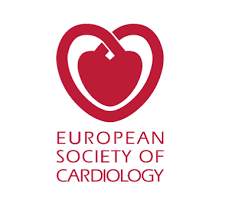
The Hot Line trials, several of which will also be published simultaneously in leading medical journals, feature a pair of heart failure trials — EMPEROR-Reduced: Empagliflozin in Heart Failure With a Reduced Ejection Fraction, With and Without Diabetes; and PARALLAX, which looks at ARNI versus individualized RAAS blockade in preserved ejection fraction heart failure.
Like recent other medical conferences, ESC will have research that addresses the Covid-19 pandemic, including a Hot Line study—BRACE CORONA: Continuing vs. Suspending ACE Inhibitors and ARBs in Covid-19.
Other Hot Line studies include:
- EXPLORER-HCM: Efficacy and Safety of Mavacamten in Adults with Symptomatic Obstructive Hypertrophic Cardiomyopathy.
- EAST – AFNET 4: Effects of Early Rhythm Control Therapy in Patients with Atrial Fibrillation.
- ATPCI – Trimetazidine in Angina Patients with Recent Successful Percutaneous Coronary Intervention: A Randomized, Double-Blind, Placebo-Controlled Trial.
- POPULAR TAVI: Aspirin With or Without Clopidogrel.
- LoDoCo2: Low-Dose Colchicine in Coronary Disease.
- HOME-PE: Hospitalization or Outpatient Management of PE Patients — HESTIA vs. Simplified PESI.
- BPLTTC: Blood Pressure Lowering for Prevention of Cardiovascular Events across Different Levels of Blood Pressure.
- IMPACT-Afib: Implementation of Stroke Prevention in Atrial Fibrillation.
- DAPA-CKD: Dapagliflozin in Patients with Chronic Kidney Disease.
- REALITY: A Trial of Transfusion Strategies for Myocardial Infarction and Anemia.
Also on the schedule is the unveiling of new ESC clinical guidelines on management of adult congenital heart disease, atrial fibrillation, and physical activity following MI.
Because the ESC originally planned to meet in Amsterdam, the ESC website notes that presentation times are local Amsterdam time, six hours ahead of New York time; however, the ESC meeting planners are departing from the congress tradition of early morning live presentations and instead scheduling the bulk of the presentations to begin at midday—a hat tip to the thousands of regular attendees who are based in North America.
Peggy Peck, Editor-in-Chief, BreakingMED™
Cat ID: 102
Topic ID: 74,102,730,102,2,204,3,306,308,358,4,446,5,6,8,913,914,192,925,203


